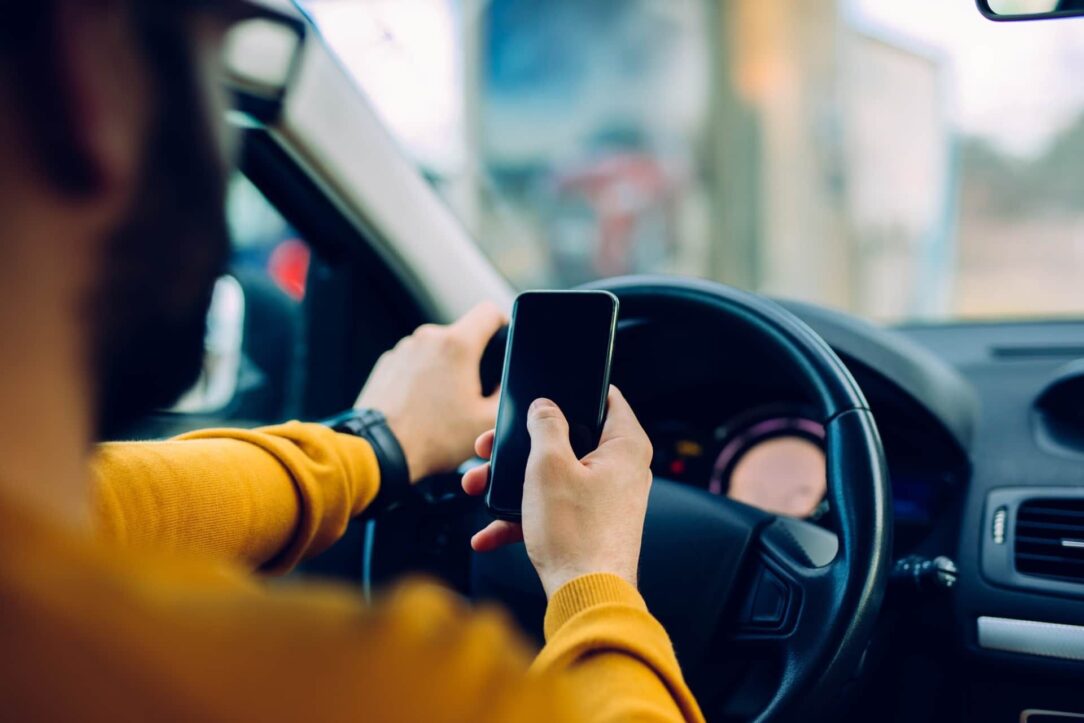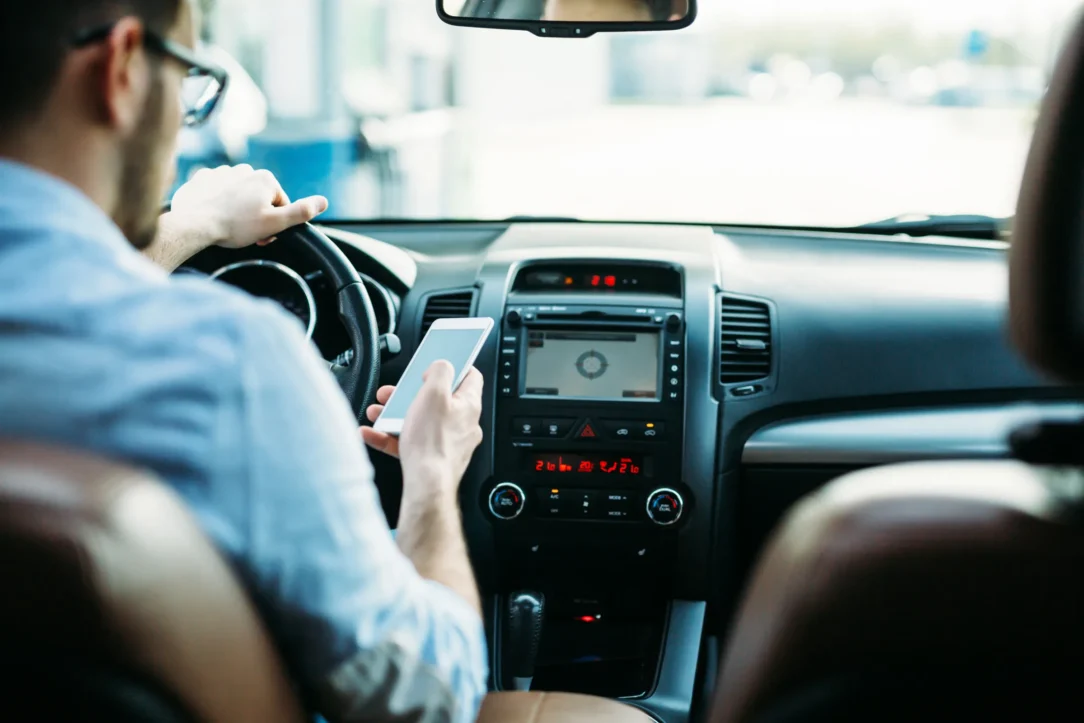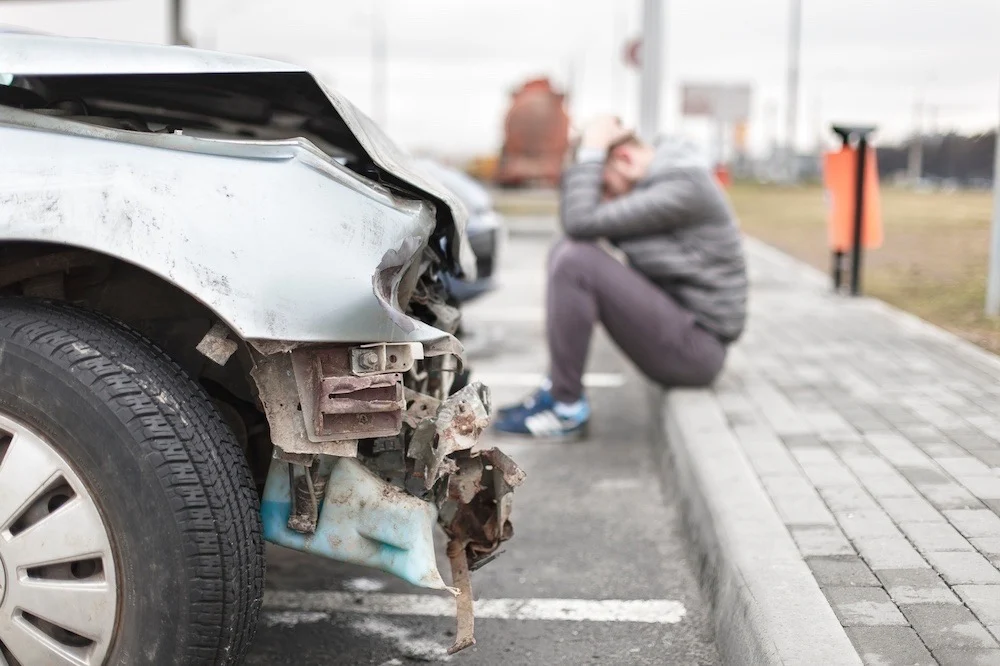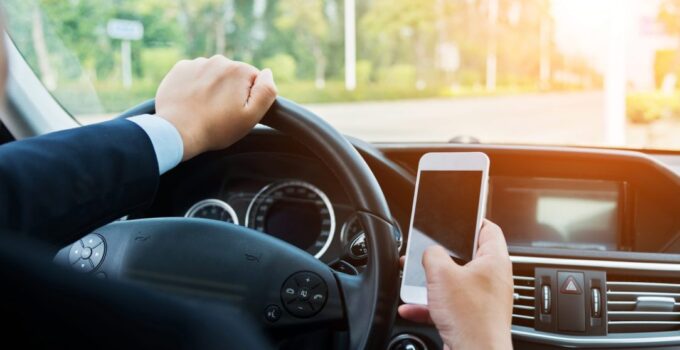Distracted driving is an ever-present problem among motorists. Texting, eating, applying makeup, reading, or fidgeting with dials are all distractions that can be prevented. Sadly, distracted driving remains one of the leading causes of fatal accidents in the United States, including here in Georgia.
According to the National Highway Traffic Safety Administration (NHTSA), in 2020 (the most recent data year available), more than 3,100 people were killed in accidents directly related to distractions. Accidents directly caused by distracted driving accounted for more than 420,000 deaths.
NHTSA Campaign Focuses on Mobile Devices

Source: acceptanceinsurance.com
In an effort to prevent distraction related accidents, the NHTSA recently ran a campaign called U Drive. U Text. U Pay. The campaign focused on highlighting the dangers of distracted driving, particularly use of cell phones or mobile devices.
The U Drive. U Text. U Pay campaign focused on drivers’ use of mobile devices. While most commonly, people think that texting is the most dangerous action behind the wheel, there are actually quite a few behaviors that can be dangerous, including:
- Texting
- Talking
- Reading
- Replying to Emails
- Uploading Photos or Videos
- Browsing Social Media
- Taking Selfies
All of these behaviors immediately increase the risk of being involved in a road accident. And the reality is that they increase the risk of a distraction related death. Even if the roads are clear, one has to be very careful about how they are responding to external stimuli.
Among these behaviors, the one which is considered the most concerning is texting. When you are replying to someone, one has to include their cognitive ability which is better applied to safe driving. One cannot risk their well-being while driving which is exactly what texting would lead to. one is not only getting distracted visually but will also have one of their hands occupied which delays reaction in case of an emergency.
Surveys Show Drivers Still Distracted
Despite the efforts of organizations like the NHTSA, people still seem to be performing the same dangerous behaviors behind the wheel. A survey by the Advocates for Auto and Highway Safety found that 70% of drivers report using a cell phone while driving in the past year. Meanwhile, 80% of drivers report being concerned about the problem of distracted driving and believe law enforcement is not doing enough to stop it.
This conflicting information suggests that drivers do care about the issue of distracted driving, but many are not willing to change their own behavior.
What is Recommended?

Source: wired.com
Apart from general vigilance of the surrounding, certain other recommendations are issued for all the individuals to be less distracted. These are listed as follows:
- If the driver receives a call or a text with the need to reply urgently, it is better to find a safe spot to park. If one has to send a quick text they can just follow over to the site and get their work done before going their way. The party location also has to be safe enough to not attract accidents.
- If you are not traveling alone your passenger can handle your texting and your phone so that you stay connected without compromising your safety. If you are traveling in a group with friends one can appoint a designated texter who will handle the texting replies all the while the driver is on the road.
- If you are traveling alone and do not trust yourself with the phone, it is better to keep it away. Even keeping the device in the vicinity can make people want to check notifications from time to time. In such a case, the best thing to do is keep the smartphone in the trunk where it cannot be accessed easily by the driver.
These steps are obviously very effective for safe driving. NHTSA anticipates a certain level of initiative taken by the drivers themselves to promote their safety. The website encourages people to take a pledge and comet to road safety of not only themselves but of everyone around them.
Georgia’s Hands-Free Law
Here in Georgia, lawmakers have created the Hands-Free Law, which makes drivers who use cell phones while driving subject to penalties. The Hands-Free Law states the following:
- Drivers cannot have a phone in their hand, or touch their body, while driving.
- Drivers cannot (even with hands-free technology) read, write, or send text messages, emails, or social media posts.
- Drivers cannot watch videos on a mobile device while driving.
- Drivers cannot use a mobile device to record video while driving (except for running dash cams).
- Drivers can listen to streaming music while driving, but cannot watch music videos or touch their phones to program apps.
Drivers who are caught disobeying these laws are subject to penalties including:
- First Conviction: A $50 fine and 1 point against their driver’s license.
- Second Conviction: A $100 fine and 2 points against their driver’s license.
- Third Conviction: A $150 fine and 3 points against their driver’s license.
More than three convictions follow the third conviction rule for each subsequent violation.
Involved in a Distracted Driving Accident?

Have you been injured in an accident caused by a distracted driver? If so, you may have the right to pursue compensation for your injuries and other losses related to the accident.
If an injury occurred at the hands of somebody who was being deliberately negligent one has the right to file a personal injury claim. It is especially important if the accident was very severe and led to physical and psychological damage along with property damage. To find out more about the legalities, contact a Georgia personal injury attorney, such as embrylawfirm.com.
The Takeaway
The campaigns launched by the National Highway Traffic Safety Administration are commendable especially for people who have a growing dependance on their phones. There are many recommendations and tips mentioned on the official website that promote personal safety and well-being. It is best to refrain from using the device at all while driving on any kind of road.




